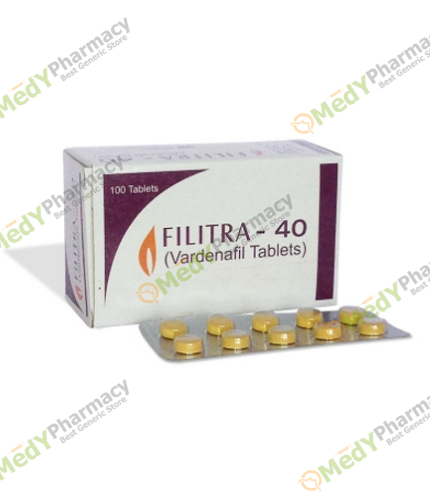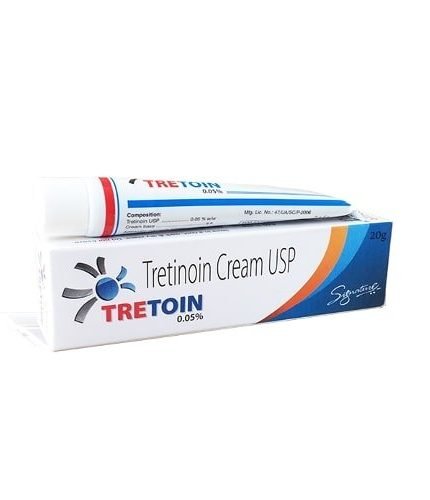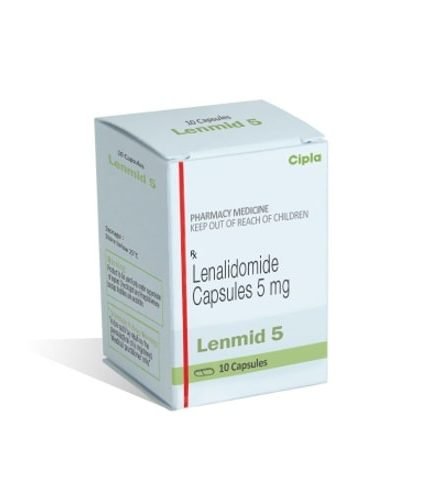Introduction:
Some issues do not appear to be particularly serious at first glance. However, if left untreated, these abnormalities can escalate into more serious problems. Acid reflux is undoubtedly one of them. Those who suffer from the illness experience enormous distress.
Constant burping, which generates a burning sensation in the throat, can irritate anyone. Additionally, it might cause feelings comparable to cardiac arrest. Treating this appropriately is critical to avoiding long-term health issues.
In addition, other issues in the body cause problems like this. As a result, we must identify both the causes and the symptoms. Following that, we will learn about the most effective therapies for the problem.
Heartburn is a symptom of acid reflux, also known as gastroesophageal reflux, even though the names are sometimes used interchangeably.
What Is Acid Reflux?
Your stomach contents are meant to only go one way: down. Acid reflux occurs when acid from your stomach rushes backward (up) into your esophagus and throat.
When acid gets into places where it doesn’t belong, you’re bound to feel it. Acid irritates and inflames the tissues in your esophagus, which runs from your stomach through your chest pain and into your throat.
Almost everyone has experienced acid reflux at some point in their lives. It could be indigestion (burning stomach pain after eating) or heartburn (burning chest discomfort around your sternum).
Acid reflux might be annoying, but it is not an illness. However, some people suffer from reflux daily. Chronic acid reflux can have a significant impact on your quality of life, as well as cause tissue damage.
However, if it does not fully close or open frequently, acid from your stomach can enter your esophagus. This might create symptoms like heartburn, which is a burning chest ache. If acid reflux symptoms appear more than twice a week, you may have acid reflux disease, commonly known as gastroesophageal reflux disease.
Why Do People Get Acid Reflux?
The stomach contains hydrochloric acid, a powerful acid that aids in the breakdown of food while also protecting against infections such as germs.
The stomach lining is ideally designed to resist the intense acid, but the esophagus is not.
The gastroesophageal sphincter is a muscle ring that works as a valve, allowing food into the stomach but not back into the esophagus.
When this valve fails, stomach contents flow back into the esophagus. This is an example of acid reflux. As the acid builds, a burning feeling in the esophagus develops. This is a case of heartburn.
Check To See Whether You Have Acid Reflux
Heartburn is defined by a burning sensation in the center of the chest and an unpleasant sour taste in the mouth caused by stomach acid.
- Recurring cough or hiccups
- A hoarse voice
- Terrible breath.
- Bloating and feeling ill
Why Does This Condition Occur?
Acid reflux can occur due to a variety of reasons. In this scenario, stomach acid enters the esophagus.
It should not happen typically because we do not usually feel a burning feeling. However, when we do, it is due to acid reflux.
Numerous things contribute to this. Our way of life undoubtedly has a significant impact.
The foods we eat, as well as the daily habits we engage in, can all have an impact. Certain drugs may also cause the problem.
How to Cure Acid Reflux
If you’ve been experiencing frequent attacks of heartburn or other acid reflux symptoms.
- Eat Sparingly and Gradually
When the stomach is particularly full, more reflux into the esophagus may occur. If it fits into your schedule, you might want to try something called “grazing” – eating small meals more frequently rather than three major meals each day.
- Avoid Particular Meals
People with acid reflux were traditionally told to exclude all but the blandest foods from their diets. But that is no longer the case. We’ve come a long way since the days when there was nothing to eat.
- Mint
- Fatty Foods
- Spicy Food
- Tomatoes
- Onions
- Garlic
- Coffee
- Tea
- Chocolate
- Alcohol
If you eat any of these items regularly, you could try eliminating them to see if it helps with your reflux, and then gradually reintroducing them.
- Avoid Carbonated Beverages
They cause you to burp, which allows acid into the esophagus. Drink plain water rather than sparkling water.
- Stay Up After Eating
Gravity, whether standing or sitting, helps to keep acid in the stomach where it belongs. Finish your meal three hours before you go to bed. This means no naps soon after lunch, no late suppers, or midnight nibbles.
- Do Not Move Too Quickly
An after-dinner stroll is good, but a more vigorous workout, particularly one that requires bending over, can cause acid to enter your esophagus.
- Sleep in an Inclined Position
The ideal height for your head is six to eight inches higher than your feet. You can accomplish this by installing extra-tall bed risers on the legs that support your bed’s head. If your sleeping companion opposes the alteration, consider employing a foam wedge support for your upper body. Don’t try to make a wedge by stacking pillows. They will not provide the required uniform support.
- Lose Weight, If Indicated
Increased weight distributes the muscular tissue that supports the lower esophageal sphincter, reducing the pressure that keeps it closed. This results in reflux and heartburn.
- Quit Smoking
Nicotine may relax the lower esophageal sphincter.
- Examine Your Meds
Some medications, such as postmenopausal estrogen, tricyclic antidepressants, and anti-inflammatory pain relievers, can relax the sphincter, whereas others, particularly bisphosphonates such as alendronate, ibandronate, or risedronate, which are used to improve bone density, might irritate the esophagus.
What Are The Causes Of Acid Reflux Disease?
Acid reflux disease is commonly caused by a gastrointestinal abnormality known as a hiatal hernia. Normally, the diaphragm helps to retain acid in your stomach. However, if you have a hiatal hernia, acid can enter your esophagus and create symptoms of acid reflux illness.
- Eating huge meals or resting down immediately after eating
- Becoming overweight or obese
- Eat a large lunch and lie on your back or bend down at the waist.
- Snacking near bedtime.
- Consuming particular foods, such as citrus, tomato, chocolate, mint, garlic, onions, or spicy or fatty foods.
- Consuming certain liquids, such as alcohol, fizzy drinks, coffee, or tea
- Smoking
- Being pregnant
Taking aspirin, ibuprofen, certain muscle relaxants, or blood pressure drugs
How Can You Get Rid Of Acid Reflux?
A doctor can assist a person get rid of acid reflux through a variety of methods.
- PPIs and H2-blockers
People with GERD who experience acid reflux regularly have two major therapeutic options: PPIs or H2 blockers. These drugs lower acid production and the risk of acid reflux-related harm.
They are generally safe and effective, but like with any prescription treatment, they are not recommended for all persons with reflux disease and may induce negative effects. For example, they can impair nutritional absorption. This can result in malnutrition.
The American Journal of Gastroenterology’s most recent guidelines advocate only a short course to reduce the risk of negative effects.
- Antacids
OTC treatments to lower the acidity of stomach contents are available for persons who get heartburn or indigestion occasionally, possibly as a result of occasional food and drink triggers.
Antacids are liquid and tablet formulations that are available in dozens of brands, all of which are equally effective. They may not be suitable for everyone, and any requirement for frequent use should be discussed with a doctor.
They typically contain chemical components such as calcium carbonate, sodium bicarbonate, aluminum, and magnesium hydroxide. These substances provide quick but temporary relief by decreasing the acidity of the stomach contents. However, they can also impair nutritional absorption, resulting in shortages over time.
- Antacids containing alginate
Furthermore, Gaviscon is an antacid that functions slightly differently than other antacid medications. In addition to an antacid, it contains alginic acid. Brown algae naturally contains the active component, alginate.
Alginic acid acts by producing a mechanical barrier against stomach acid, resulting in a frothy gel that rests on top of the gastric pool itself. Any reflux that occurs is then generally innocuous because it contains alginic acid rather than the harmful stomach acid.
Other Therapy Possibilities
- Acid suppressants using sucralfate
- Acid blockers that compete with potassium
- An mGluR5 antagonist
- Agents with prokinetic properties
- Regulators of pain
- Tricyclic antidepressants
- Selective serotonin reuptake inhibitors
- Theophylline is a reuptake inhibitor of serotonin and norepinephrine.
If GERD is severe and does not respond to medical treatment, a fundoplication surgical procedure may be required.
Lifestyle Modifications
- Improving posture, such as sitting up straighter
- Keeping a healthy weight
- Stopping smoking
- Consuming more fiber
- Avoiding late-night meals.
- Raising the bed when sleeping.
A recent study reveals that making healthy dietary choices may be as helpful as taking proton pump inhibitors (PPIs) to cure acid reflux.
Foods That May Cause It
Certain meal habits can cause acid reflux more often than others. This is something you may expect if you consume a lot of fatty foods. Excess fatty foods can raise the risk of acid reflux.
It is also possible if you eat hot foods on a regular basis. Consuming hot and spicy foods all the time can heighten these hazards. Consuming contaminated products with chemicals might also cause such problems.
Consuming unhealthy street meals that are contaminated with preservatives and pollutants can often increase the risk. These are the kinds of foods that most commonly cause acid reflux.
Smoking and Alcohol Consumption Can Trigger
Adult smokers or drinkers are likely to experience this. Alcohol consumption may raise the risk of acid reflux. Smoking and other habits might also cause this. People who engage in both of these activities are more prone to suffer such challenges.
These problems might become chronic and irritate a person. In such circumstances, treating the issue becomes more difficult. Getting rid of these habits is critical to dealing with the circumstances.
After getting rid of it, one can reap significant benefits. This will naturally help to remove the issue. You can expect these troubles to continue bothering you till then. These habits have an impact on your health and can even cause ailments such as acid reflux.
Medications that can cause acid reflux
Certain drugs will produce a certain type of side effect. Some medications may cause acid reflux as a negative effect. They may be harmful to your stomach, causing increased acid secretion.
Severe acid can surely reflux back into your esophagus, creating severe discomfort. Aspirin and other medications have the potential to cause this.
Long-term use of aspirin might raise the risk of acid reflux. If you continue to rely on aspire income, you are more likely to experience acid reflux.
Who Is More Prone To Acid Reflux?
More than the one we discussed earlier, several more reasons can cause distress. For example, there are several lifestyle aspects over which we have little influence.
Workload pressure, worry, and stress occur as a result of various factors affecting our bodies. These factors can have an impact on our health, increasing the likelihood of acid reflux.
Genetic factors can potentially contribute to this. According to studies, persons who have a relative or sibling who suffers from acid reflux may develop it themselves at some point.
A Pharmacist Can Assist You With Heartburn And Acid Reflux.
- If you continue to have heartburn, consult a pharmacist for help.
- They may offer antacids or alginates to alleviate your symptoms.
- It’s preferable to take them with food or shortly after eating, as heartburn is most likely to occur during this period. When taken with food, they may last longer.
- Antacids and alginates can help with symptoms in the short term, but they will not solve the condition and should not be used daily.
- A pharmacist can advise you on which medications you can use while pregnant.
Treatments and Tests for Severe Acid Reflux and Heartburn
- Tests to check for bacteria that might cause heartburn, which can be treated with a mix of antibiotics and PPIs.
- Surgery on your stomach or food pipe to cure acid reflux.
Complications from Acid Reflux
Persistent acid reflux, often known as GERD, can lead to serious consequences if not treated.
- Esophagitis
The esophageal lining is inflamed, which causes irritation, bleeding, and ulceration in some situations.
- Strictures
Damage produced by stomach acid leads to scar growth and difficulty swallowing, with food becoming trapped as it goes down the esophagus
- Barrett’s esophagus
A dangerous problem when prolonged exposure to stomach acid creates alterations in the cells and tissues lining the esophagus that have the potential to grow into cancer cells.
Symptoms of acid reflux
Evaluating these signs can help you determine if you have acid reflux. A person may experience the following common symptoms:
- Burning in the heart and throat
- Laryngitis
- Stomach ache
- Having difficulty swallowing
- Regurgitation of sour liquids
- Feeling a lump in my throat
If you have these symptoms, you must consult a doctor. You can also acquire high-quality drugs to assist you manage your condition. These medications are most commonly available at over-the-counter pharmacies.
Treatment Alternatives
Antacids can help treat the illness. You can acquire potent antacids to control the issue. It will assist you in overcoming the symptoms that are bugging you.
You might choose these antacids that come in oral tablet form. It is also available in liquid form, which you can drink like syrup.
You can also use proton pump inhibitors to stop the stomach from creating excess acid. This will help to avoid excess acid production, which causes distress.
H2 Blockers are another type of medication that has the potential to work. They may also be able to assist you in effectively managing the problem.
Diagnosis for acid reflux
If you experience acid reflux symptoms two or more times per week or if drugs do not provide long-term relief, it is time to consult your doctor. Symptoms like heartburn are important in diagnosing acid reflux illness, especially if healthy lifestyle adjustments, antacids, or acid-blocking drugs assist in alleviating them.
If these steps do not help, or if you are experiencing frequent or severe symptoms, your doctor may prescribe testing to confirm the diagnosis and rule out other issues.
- A Barium Swallow Radiograph.
This specialized X-ray procedure may be used by your doctor to rule out structural issues with your esophagus. This harmless acid reflux test will need you to swallow a barium solution. The barium allows physicians to take X-rays of your esophagus. However, barium swallow is not a foolproof way to diagnose GERD. Only one out of every three persons with GERD has esophageal abnormalities apparent on X-ray.
- Endoscopy or EGD
Before placing the tube, your gastroenterologist may administer a small sedative to aid in relaxation. To make the process more comfortable, your doctor may spray an analgesic into your throat. This acid reflux test normally lasts around 20 minutes. It is not painful and will not impair your capacity to breathe.
- Monitoring the esophageal impedance
This test provides an even more complete picture of how effectively your esophagus is performing and can be performed in conjunction with manometry. It employs a manometry tube with electrodes positioned at strategic spots throughout its length. It monitors the rate at which liquids and gasses move through your esophagus. When your doctor compares these findings to your manometry results, they can determine how successfully your esophageal contractions transfer substances through your esophagus and into your stomach.
How to Treat Acid Reflux At Home
- Eat smaller meals more frequently throughout the day, and vary the items you eat.
- Give up smoking.
- Eat for at least 2 to 3 hours before lying down.
- Take a nap in a chair during the daytime.
- Avoid wearing clothing or belts that are too tight.
- If you are overweight or obese, begin to reduce weight through exercise and dietary adjustments.
- Also, check with your doctor to see if any medications are causing your heartburn or other acid reflux symptoms.
Acid reflux can be managed with several effective home treatments. They also assist you in controlling the problem from the start.
You can drink aloe Vera juice daily. To obtain the most benefit, make your own aloe Vera juice.
You can also chew gum, which stimulates saliva production. Saliva helps to neutralize the acids produced by your stomach. This can help you prevent the side effects of acid reflux.
Prevention of acid reflux
In addition to the lifestyle adjustments described above, implementing the following changes may help avoid the onset of acid reflux.
- Recommendations include staying upright after eating, eating 2-3 hours before bedtime, and quitting or avoiding smoking.
- Avoid intense activity after eating, lose weight if overweight, and avoid wearing tight clothing around the abdomen.
- Sleep at an angle, with your head slightly lifted.
Can Meals Trigger Acid Reflux?
Foods and drinks are unlikely to induce acid reflux on their own, but they can exacerbate it. Chocolate, coffee, wine, mint, garlic, and onions may all have a soothing impact on your LES in higher concentrations.
Fatty foods raise stomach acid and take longer to digest, allowing acid to exit more easily. If you have a large meal for dinner, you may not have enough time to digest it before you fall asleep.
Last Words:
Acid reflux is a very uncomfortable condition. To avoid this distress, you must attempt to control the symptoms.
You first identify the symptoms you are experiencing, and if they correspond to those listed above, you can begin working on them. Then you can look at several treatment options that will aid you.
If you have a family history of acid reflux or any risk factor, do not put off seeing Medypharmacy























